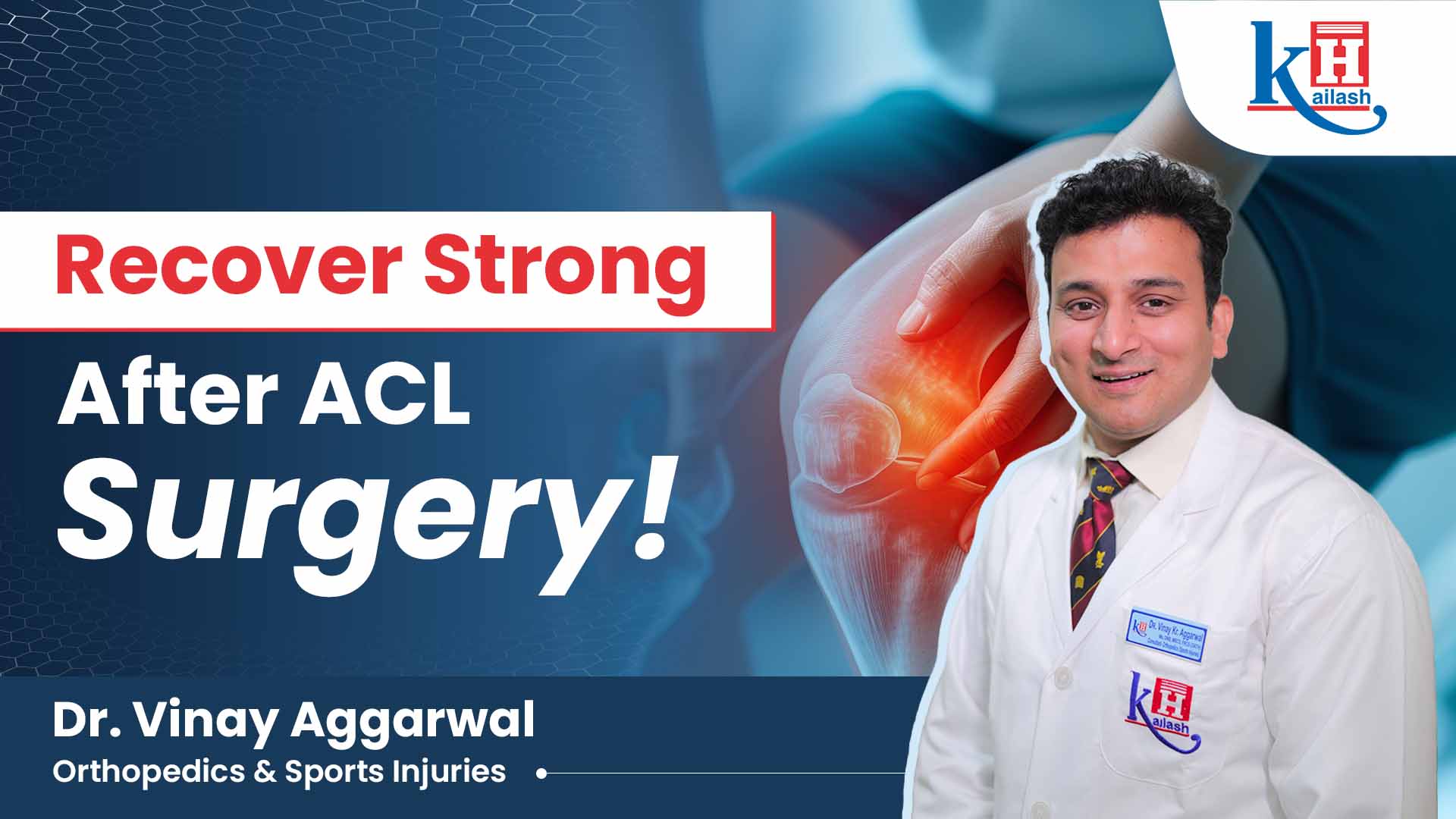Knee Replacement Surgery: Expert Answers to Common Questions
Verified By Dr. Rohit Singh | 21-Aug-2024
Knee replacement is a major surgery that can help improve your quality of life if you've been suffering from chronic knee pain or disability. To help facilitate a series of questions on knee replacement surgery, we have our specialist in orthopedics & joint replacement for an insight into this life-changing process — Dr. Rohit Singh, Consultant Orthopedic Surgeon at Kailash Hospital Noida Branch. This extensive Q&A session will tell you everything you need to know about knee replacement surgery, whether it was suggested for yourself or if you are just curious.
Q1: What are the most common reasons for undergoing knee replacement surgery?
Dr. Rohit Singh: "It is a well-known fact that the incidence and prevalence of joint paint & arthritis is increasing. Multiple factors such as improved life expectancy, poor muscle health & lack of physical activity contribute to poor bone health and joint problems. The main reason people get knee replacement surgery is because they have severe knee pain and can't move well due to problems like osteoarthritis rheumatoid arthritis, or arthritis after an injury. Patients often deal with bad arthritis and stiff & painful joints, which makes their daily life harder. When medicine, exercises, and lifestyle changes don’t help anymore, knee replacement surgery might be the best way to help them move better with no pain.”
Q2: Can you explain the different types of knee replacement surgeries available?
Dr. Rohit Singh: “Total Knee Replacement (TKR): TKR is one of the most common type of knee replacement surgery done and this resurfaces both sides/ compartments within your joint space, With an artificial implant in Partial Knee Replacement-Damaged part of one knee is replaced. Total knee replacement is similar, and typically recommended for people with extensive joint damage – whereas partial replacements may be considered in those with more localised disease.”
Q3: How is the decision made between total knee replacement and partial knee replacement?
Dr Singh: “One of the biggest determinants for whether to perform full or half knee replacement is the amount of damage in a joint, but it can also be down to very specific symptoms. To assess the condition of your knee and figure out the course, imaging studies are used such as X-rays or MRIs. Partial knee replacement will only be considered if damage is limited to one compartment of the knee and if patient has a relatively healthy surrounding joint.”
Also read: Robotic Knee Replacement: The Next Generation in Knee Surgery
Q4: What can patients expect during the recovery process after knee replacement surgery?
Dr Rohit Singh, “There are different phases of recovery in a knee replacement surgery. All patients will be monitored afterwards for pain. Following surgery, physical therapy starts immediately to restore strength, improve flexibility and range of motion. Although most can return to lighter activities in a matter of weeks, full recovery and resumption of normal activity levels may take a couple of month. It is important to adhere strictly to the rehabilitation programme if you want an early complete recovery.”
Q5: Are there any specific precautions or lifestyle changes that patients need to follow post-surgery?
Dr. Rohit Singh: "This comprises of avoiding high impact activities for sometimes, losing weight if needed to reduce the strain on knee, physical therapy exercises regularly. You should watch for signs of infection, intrinsic or extrinsic complications and come for regular follow-up appointments on time.”
Q6: What are the potential risks or complications associated with knee replacement surgery?
Dr. Rohit Singh: "All surgical procedures have risks and the potential for complications especially a major operation such as knee replacement; infection, blood clots in legs (DVT), failure of the metal/plastic joint parts to bond together (a loose prosthesis), stiffness etc. Nevertheless, due to proper technique in surgery and postoperative care these risks are relatively low. At Kailash Hospital, Noida, our team goes through extensive measures to minimize these risks keeping your health and quick recovery on our top priority.”
Q7: How long does the knee replacement implant typically last, and when might a revision surgery be needed?
Dr. Rohit Singh: "State of the art knee replacement implants are meant to last a decade or two, often lasting 15–20 years depending upon how active and healthy that patient is in general. Unfortunately, things can wear out over time and some patients need revision surgery to replace or revise the implant. The patient can help prolong the life of implant and reduce risk for needing revision if they actively seek regular follow-up visits with their orthopaedic surgeon and lead healthy lives.”
Also read: Noida to Witness Historic Milestone in Healthcare with First Fully Automated Robotic Knee Replacement Surgery at Kailash Hospital
Q8: What role does physical therapy play in the recovery process, and how important is it?
Dr. Rohit Singh: "The reason why physical therapy is so important after knee replacement surgery, for instance. It allows the patient to recover strength, flexibility and range of motion in the knee – all crucial elements for optimal function and mobility. Our knee replacement specialists at Kailash Hospital Noida, prepare a customized physical therapy program that makes recovery faster and more efficient taking due consideration of minimizing complication risk while ensuring the most optimal outcomes.”
Q9: Can knee replacement surgery improve the quality of life for patients?
Dr. Rohit Singh: "Absolutely. The main goal of knee replacement surgery is to improve the patient's quality of life significantly by treating their pain and making them capable of doing things again. Most patients have tremendous improvements in functional capacity returning them to work, recreation and overall quality of life. This result in less suffering and better functioning, and a more productive plus gratifying life for our patient.”
Final Thoughts
There's no doubt that knee replacement surgery can change the life of someone suffering from severe knee pain and disability. Different types of surgery exist each with its own recovery process and possible risks. Understanding what happens during physical therapy can help you make the right choice for your situation. At Kailash Hospital Noida, Dr. Rohit Singh and his team work hard to guide the patients through the treatment process. Their goal is to cure patients giving them a better quality of life for years to come.
To ask more questions and get advice, you can reach out to a reliable doctor like Dr. Rohit Singh. He's a top knee replacement expert who can help you grasp all aspects of your case. This can boost your confidence in sticking to your treatment plan without worries or confusion.



 +91-9711918451
+91-9711918451
 international.marketing@kailashhealthcare.com
international.marketing@kailashhealthcare.com







